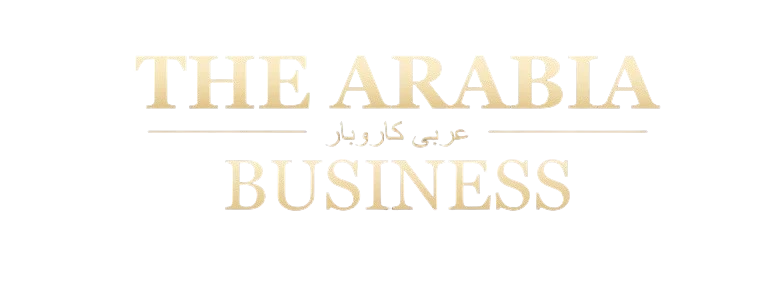
Post-Pandemic Real Estate Boom in Dubai: What’s Driving the Surge?
From Petroleum to Ideas: The UAE Strategic Transformation
The United Arab Emirates (UAE) is forging a new trajectory towards the future, one in which it transitions from an economy based on petroleum to a knowledge-driven giant driven by innovation, human resources, and technological growth. This evolution is not an afterthought resulting from the limited supply of fossil fuels but rather a strategic, visionary step taken towards long-term sustainability and competitiveness. With global ambitions outlined in plans such as Vision 2021 and Centennial 2071, the UAE is positioning itself to lead in sectors like technology, renewable energy, and advanced manufacturing. At the heart of this economic diversification lies education reform—a deliberate and calculated effort to cultivate a generation ready to thrive in a future where knowledge is the most valuable resource. A knowledge-based economy places a high emphasis on knowledge creation, sharing, and utilization, drawing increasingly on intellectual assets and skilled people rather than on natural resources. For a country long subsidized by its oil riches, transforming towards such an economy is as much a challenge as an opportunity, and it requires a fundamental reappraisal of its educational underpinnings.
Reimagining Education for the Knowledge Economy
To fulfil this vision, the UAE positioned education as a national strategy’s centrepiece. The National Strategy for Higher Education 2030 purposely ties education to a future, modern, innovative economy, setting emphasis on science, technology, engineering, and mathematics (STEM) as supports for progress. Reforms span from kindergarten to university institutions to create graduates that are not merely learned but innovative, versatile, and problem-solving in their thinking. The Ministry of Education has overhauled K-12 curricula to move away from memorization and towards digital literacy, critical thinking, and problem-solving. These curricular reforms are accompanied by significant investment in teacher training to guarantee contemporary pedagogy in every classroom. At the university level, collaborations with top international institutions like NYU Abu Dhabi and Sorbonne University Abu Dhabi serve to elevate academic standards and promote world-class research, while local universities are being challenged to better align with actual job skills.
Government as Innovator and Enabler
The UAE government is an active player not only as a funder but also as an innovation catalyst. By having technology and research-specific free zones, startup support, and heavy R&D investments, the state provides a landscape where education and industry can both develop side by side. Policy-level flexibility does the same environment further good; for example, academic initiatives that used to take months to get approved now get the green light within just a week. But transforming an entire nation’s education system to favour critical thinking and innovation isn’t easy. Cultural norms that benefit traditional approaches to learning must change, an evolution that could take generations. However, the government’s end goal is to facilitate quicker uptake of contemporary practices in all educational institutions and the private sector.
Closing the Gap Between Ambition and Outcome
Despite very high levels of literacy and almost universal levels of enrollment, there are strong challenges to establishing educational quality against international standards. UAE students are frequently below international averages in major tests like PISA, and this implies there is still a need for foundational teaching and learning performance improvements. Along with this, however, are questions regarding whether its education system is equipping graduates to face the intricacy of these industries. Having a substantial expatriate population presents yet another layer of depth—a contribution in bringing in necessary talent, yes, but an emphasis, too, on the need to keep Emirati citizens competitive in the changing employment landscape.
Resources, Inclusion, and Equity
Financially, the UAE spends around 1.5% of its GDP on education, which is less than the world average of 4-5%. Nevertheless, this is complemented by strong private-sector engagement and international academic partnerships. Upscaling the transition to a knowledge economy could involve further public expenditure, particularly in teacher development and research facilities. On a more positive note, the UAE is doing well in terms of gender inclusion in tertiary education—women make up a majority of tertiary-level students. However, converting this scholarly prowess into parity in workforce participation is still a work in progress. Enabling women to join meaningfully in the knowledge economy could add considerably to national productivity and innovation potential.
Lifelong Learning and the Road Ahead
In appreciation that learning cannot abate at graduation, the UAE is proactively encouraging lifelong learning. Organizations such as the National Qualifications Authority and the implementation of Teacher and Educational Leadership Standards ensure that skills remain current in a time of fast-paced technological transformation. Though the nation has up-to-date education infrastructure and is becoming more and more appealing to international talent, such measures as patent applications, publication of research, and innovation rankings still trail behind international leaders such as South Korea and Finland. This emphasizes the long-term character of the transformation—the groundwork is being established, but the realization will be decades in the making. Nevertheless, through prioritizing education in STEM, creating a culture of critical thinking, and embracing lifelong learning, the UAE is creating a sustainable way forward toward economic resilience. Through doing so, it not only guarantees its future but also provides a model for other resource-abundant countries seeking to transition to knowledge-driven prosperity.






